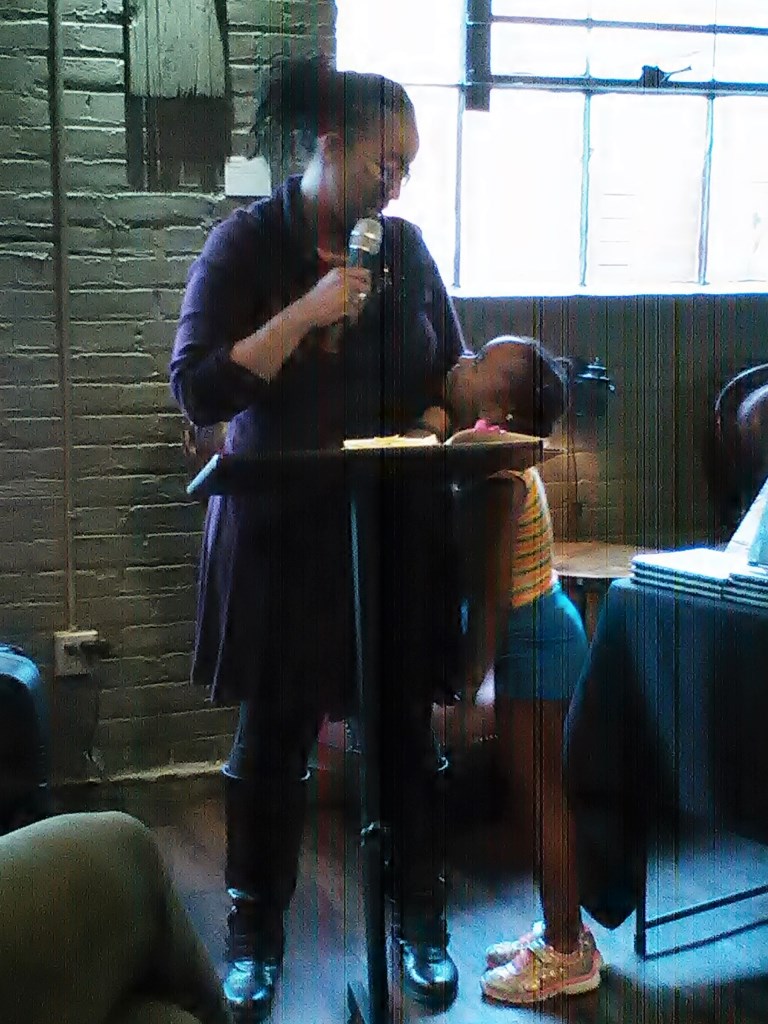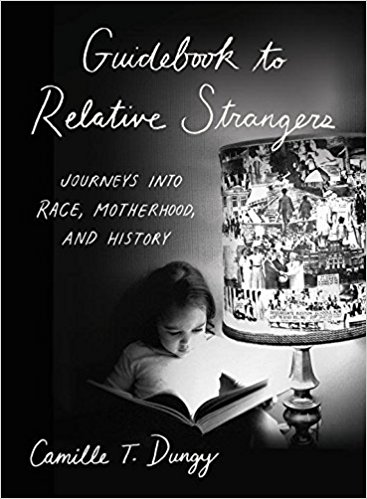
CSU’s own Professor Camille Dungy is an award-winning author of four full-length poetry collections and the editor of three poetry anthologies. Her first collection of literary essays, Guidebook to Relative Strangers: Journeys into Race, Motherhood, and History, will be published in June.
Dungy was born in Denver in 1972, but her family moved frequently around the country when she was a child. She attended Stanford as an undergraduate and later received an MFA from the University of North Carolina, Greensboro.
When Dungy’s first collection of poetry, What to Eat, What to Drink, and What to Leave for Poison, appeared in 2006, it was widely praised. It was a finalist for the 2007 PEN USA Book Award and the 2007 Library of Virginia Literary Award. In 2010, Dungy published two additional poetry collections: Suck on the Marrow and Smith Blue. The collections’ recurring themes include African American identity and history, as well as nature and the human relationship to nature.
Noticing the scarcity of African American writers in canonized nature poetry, Dungy edited an anthology titled Black Nature: Four Centuries of African American Nature Poetry, which was published in 2009.
In a 2010 interview on National Public Radio, Dungy spoke about the complex relationship the anthology explores between African Americans and nature, saying, “there has always been promise and survival in the natural world” for African American people.
Dungy also collaboratively edited Gathering Ground: A Reader Celebrating Cave Canem’s First Decade in 2006 and From the Fishouse: An Anthology of Poems That Sing, Rhyme, Resound, Syncopate, Alliterate, and Just Plain Sound Great in 2009.
Dungy’s work has appeared in numerous literary journals and eleven anthologies to date, including The Best American Poetry and The 100 Best African American Poems. She has received fellowships and honors from the National Endowment for the Arts, the Virginia Commission for the Arts, the American Antiquarian Society, Cave Canem, the Breadloaf Writers’ Conference, the Djerrassi Resident Artist Program, Yaddo, Virginia Center for the Creative Arts, and the Norton Island Artist Residency Program. Her work has received the Dana Award, the Sustainable Arts Foundation Promise Award, and two Northern California Book Awards. She has twice been a finalist for the NAACP Image Award in 2010 and 2011.
Dungy’s most recent collection, Trophic Cascade, was released on March 7 of this year. On Sunday, March 5, friends, family, faculty, and students gathered at Forge Publick House in Old Town for the book’s release party, eager to hear Dungy read from her newest collection.

The gathering also honored recently-published poetry collections by Colorado poets Eleni Sikelanios (Make Yourself Happy) and Julie Carr (Objects from a Borrowed Confession).
Like many of Dungy’s previous works, Trophic Cascade explores and illuminates the natural world, but motherhood also features prominently as a theme. As Dungy stepped up to the microphone to read, her daughter clung to the hem of her skirt, not wanting to sit quietly with her father and grandparents while her mother read. In fact, Dungy had collaborated with her daughter in choosing poems about their relationship to read for the event. One poem dwelled on a quiet moment reading books with the infant girl; another answered a “frequently asked question” about whether the author plans to have another child. (She doesn’t.)

The collection’s title poem, “Trophic Cascade,” was first published by the Kenyon Review in 2015. “Trophic Cascade” traces the re-introduction of wolves to Yellowstone National Park and the interconnectedness of lives and species evidenced by it; the wolves affected deer, trees, bears, birds, weasels, berries, and even insects. Throughout the collection, the reader witnesses again and again the impact one life has upon another.
Dungy has a second publication coming up this year; her first nonfiction collection, Guidebook to Relative Strangers: Journeys into Race, Motherhood, and History, will be available on June 13.
